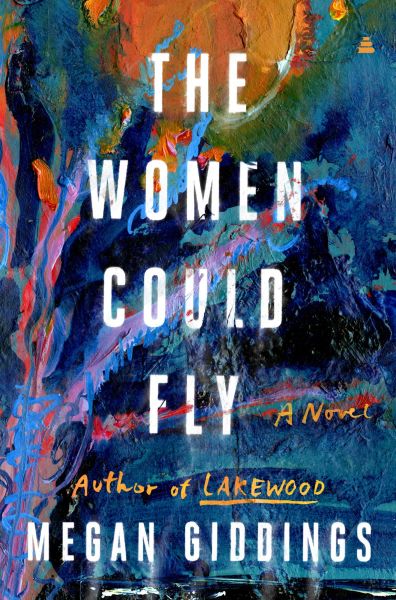Mercy More Than Life
The Women Could Fly
By Megan Giddings

3 Mar, 2023
0 comments
Megan Giddings’ 2022 The Women Could Fly is a stand-alone modern satirical fantasy.
21st century America enjoys a golden age of civil liberties, in which scapegoating and murdering women on suspicion of being witches is discouraged (in law, if not always in fact), in which licensed witches enjoy a degree of official tolerance, and in which women in general are free to do what they like, as long as what they like involves being married by the age of thirty.
Deviation from the norm, deliberate or otherwise, is always profoundly suspicious. This spells trouble for Josephine “Jo” Thomas.
Jo is mixed race. Jo is bisexual. Worst of all, Jo’s. mother vanished fourteen years ago. Jo’s family history has always attracted speculation. Did her father murder her mother? Did her mother abandon Jo because Jo’s mother is a witch? Is Jo herself a witch, tempting men and women into her bed with irresistible spells? Harmless questions, although not for Jo, who could easily find herself the guest of honor at a public burning.
Jo is also in her late twenties, which means she must either find a husband soon or register as a spinster and be subject to onerous monitoring or even institutionalization. Fortunately, Americans, ever keen to see business opportunities, have marriage brokers to find suitable matches for desperate women. Not that Jo necessarily needs such a service, since friend with benefits Preston could serve as a husband, if absolutely necessary.
After fourteen years have elapsed without a trace of her mother, Jo and her father decide to have the missing woman declared dead. Jo’s mother left a will. The will has the usual provisions. It also has an unusual one: Jo will receive a large sum of money … but only if she visits a mysterious island in Lake Superior for reasons that are unclear.
Revelations await! Not to mention the possibility of freedom from onerous American laws. However, freedom means exile. Will Jo remain on the island, leaving behind loved ones, or return to the mainland, where the authorities will be very keen to determine whether or not she is in fact a witch?
~oOo~
Satire is not always overtly funny.
After reading this and When Women Were Dragons, I think I am honor bound to try Naomi Alderman’s The Power, which at least appears to offer a choice other than “standard misogynistic social order” and “misogynistic social ordered turned up to eleven.”1
Although there is some ambiguity early in the novel about the reality and power of magic, magic is definitely very real and can be quite powerful. It is also apparently something only women can do. One might expect this would give women a leg-up, social power-wise. It only provides a pretext for malevolent laws.
No doubt persons of colour might find the detailsof the legal system here unfamiliar while finding the form very familiar. Requiring women to be married or effectively institutionalized might seem unlikely, but consider it was not so long ago that laws like one below were passed:

The target of Giddings’ legal system may be a population larger than those affected by Greenville’s law2, but the intent to control the disturbing element is the same. For that matter, it’s not hard to find women-focused laws as onerous as Gidding in existing legal systems. Presumably, American women tolerate the system for the same reasons that other people have tolerated manifestly unjust systems: they don’t think they would survive an attempt to reform it or they benefit from it personally. Or both.
This may sound like a recipe for a bleak novel. Certainly, large portions of it are grim, particularly once the anti-witch authorities take a close interest in Jo. The author is an effective writer and her depiction of this dystopia is both plausible and unsettling. However, while there is very little hope for American women in this setting (not to mention gay people or anyone else outside the norm3), the novel does offer some hope for Jo … if she can take the necessary steps.
The Women Could Fly is available here (Amazon US), here (Amazon Canada), here (Amazon UK), here (Barnes & Noble), here (Book Depository), and here (Chapters-Indigo).
1: But what of Canada, you ask? Textual evidence suggests the US is an outlier embracing laws that are way more draconian than the laws of other nations. Canada would be another nation. However, “not as bad as an extremely shitty place” still leaves a lot of room to be pretty bad.
2: Something very much like the Greenville law is proposed in Prehoda’s Your Fifty Years. This is James’ complete lack of surprise.
3: I imagine quite a few autistic people found themselves standing on piles of blazing wood in this setting.
